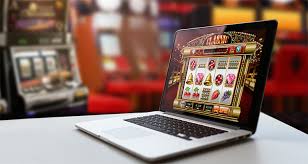
In recent years, the world of online gaming has undergone a significant transformation, particularly with the emergence of decentralized casinos. These platforms leverage blockchain technology to create a more transparent, secure, and user-centric gaming environment. The Rise of Decentralized Casino Platforms https://888starz-chile.com/ In this article, we delve into the rise of decentralized casinos, examining their benefits, the technology behind them, and the potential impact on the future of the gambling industry.
The Evolution of Gambling
The gambling industry has witnessed several transformations over the decades, from traditional land-based casinos to the rise of online platforms. However, issues related to trust, transparency, and player security have always plagued online gambling. Players often found themselves at the mercy of centralized authorities, leading to apprehensions regarding fairness and withdrawal processes.
Decentralized casinos emerge as a solution to these concerns, offering a novel approach that leverages blockchain technology to enhance player confidence. By removing intermediaries and central control, decentralized casinos provide an environment where players can directly engage with the gaming ecosystem.
What is a Decentralized Casino?
A decentralized casino operates on a blockchain platform, allowing for peer-to-peer transactions without the need for a central authority. This model contrasts sharply with traditional online casinos, where players must trust the operators to manage their funds, payouts, and fairness of games.
Decentralized casinos utilize smart contracts—self-executing contracts with the terms of the agreement directly written into code. These smart contracts automatically manage game outcomes, finances, and player interactions, ensuring that the process is transparent and tamper-proof. As a result, players can verify the integrity of games, enhancing their trust in the platform.
Advantages of Decentralized Casinos
1. Transparency and Fairness
One of the most significant advantages of decentralized casinos is their transparency. With every transaction recorded on the blockchain, players can independently verify game results and payouts. This transparency mitigates concerns regarding game manipulation or unfair practices, which have historically been problematic in the online gaming space.
2. Enhanced Security
Decentralized casinos are inherently more secure than traditional platforms. By utilizing blockchain technology, these casinos eliminate the risks associated with centralized data storage. Since player funds are held in cryptocurrency wallets rather than a central server, the risk of hacking or fraud is significantly reduced.
3. Lower Fees
Traditional online casinos often impose significant fees on deposits and withdrawals, eating into players’ winnings. Decentralized casinos, on the other hand, typically require lower transaction fees, ensuring that players retain more of their earnings. The absence of intermediaries also streamlines payment processes, allowing for faster withdrawals.
4. Global Accessibility
Decentralized casinos operate on a borderless model, enabling players from around the world to participate without geographical restrictions. This opens up new markets and opportunities for players and operators alike, making gambling accessible to a more extensive audience.
The Technology Behind Decentralized Casinos

The backbone of decentralized casinos is blockchain technology. There are several key components that enable this innovative gaming framework:
1. Blockchain Networks
Most decentralized casinos are built on established blockchain networks like Ethereum. These networks provide the necessary infrastructure for creating smart contracts and ensuring secure transactions. As blockchain technology continues to evolve, we can expect an increasing number of decentralized casinos to flourish.
2. Cryptocurrencies
Decentralized casinos predominantly use cryptocurrencies for transactions. Bitcoin, Ethereum, and various altcoins allow for swift deposits and withdrawals while minimizing transaction costs. The growing acceptance of cryptocurrencies as a legitimate form of payment further bolsters the decentralized casino model.
3. Smart Contracts
Smart contracts serve as the core mechanism through which decentralized casinos operate. These contracts enforce game rules, manage player funds, and distribute winnings automatically, ensuring fairness and transparency. Once the conditions coded into a smart contract are met, the outcomes are executed automatically, eliminating any need for human intervention.
The Future of Decentralized Casinos
As the technology behind decentralized casinos continues to advance, we can anticipate a significant shift in the gaming landscape. Several trends may shape the future of this emerging sector:
1. Increased Regulation
While decentralization offers numerous advantages, regulatory frameworks will likely adapt to encompass these new gambling models. Governments worldwide are beginning to recognize the need for regulations around decentralized platforms to protect players and ensure fair practices.
2. Improved User Experience
As with any technology, user experience is a critical factor for the success of decentralized casinos. Improvements in interface design, customer support, and education on how to use cryptocurrencies will play vital roles in attracting new players. Enhanced gaming experiences that utilize virtual reality and augmented reality could further engage users.
3. Expansion of Game Offerings
The variety of games available at decentralized casinos is expected to expand significantly. Developers are likely to create innovative games that take advantage of the unique properties of blockchain technology, offering entirely new forms of entertainment for players.
Conclusion
The rise of decentralized casinos marks a significant evolution in the gambling industry. By leveraging blockchain technology, these platforms provide a transparent, secure, and player-focused environment that addresses many of the challenges faced by traditional online casinos. As the sector continues to grow, both players and operators have much to gain from this revolutionary approach to gaming. The future of gambling may very well lie in decentralization, offering a fairer and more equitable experience for all.
